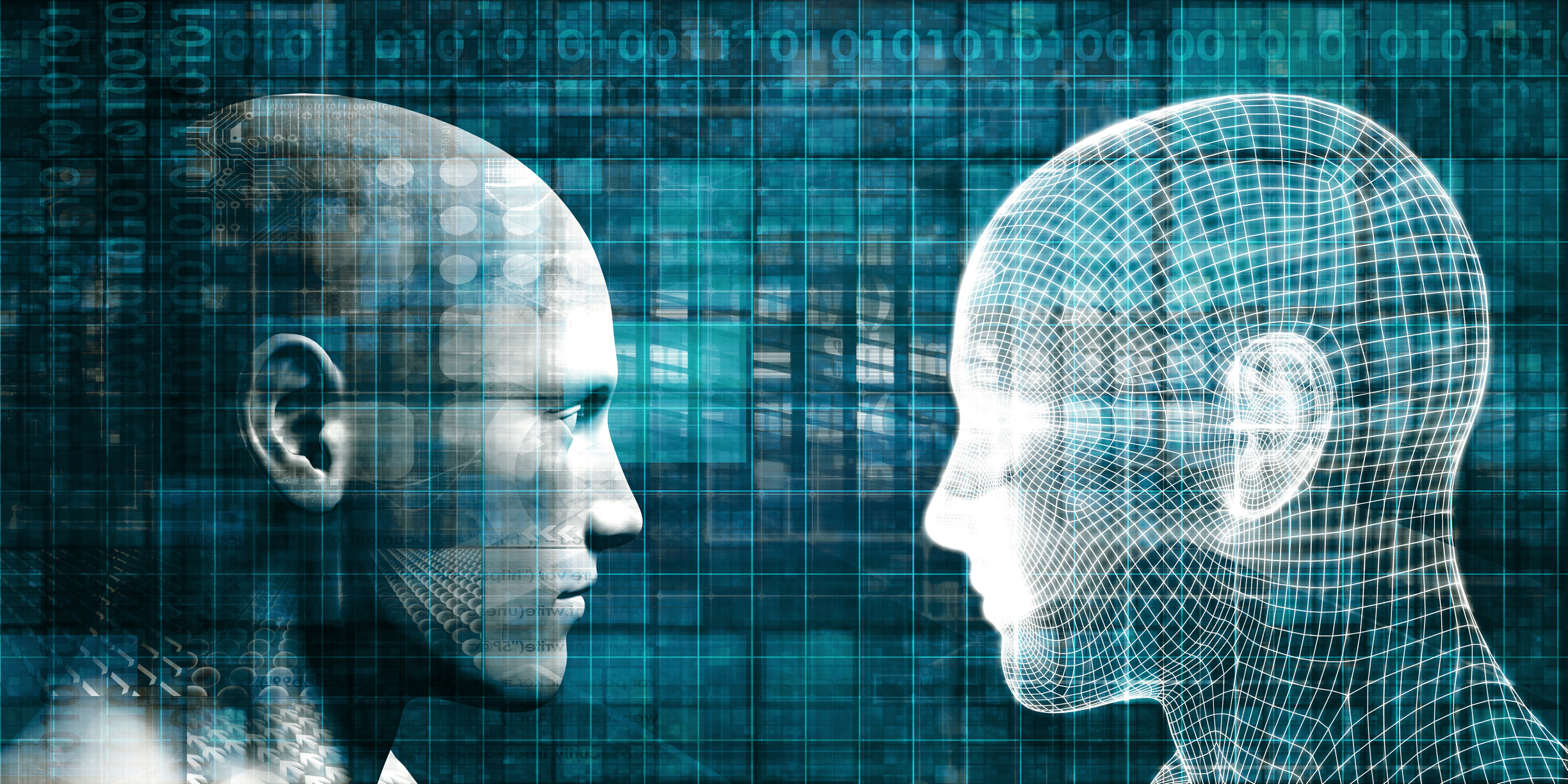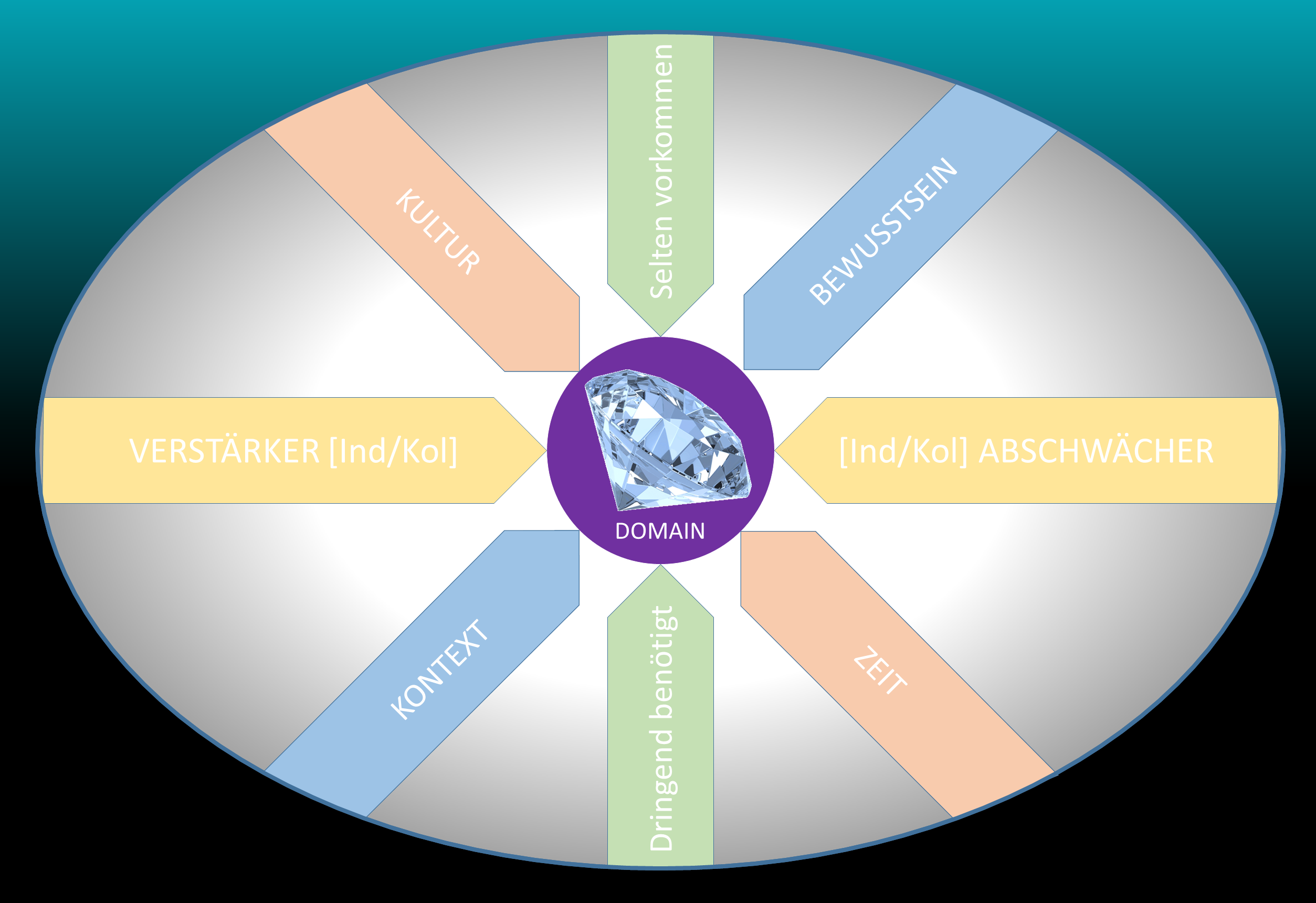People have the same, but also very different, attitudes towards their environment. For some, products and works of art are very important, for others, relationships and friendships, and for others, the spiritual is of the utmost importance. Three essential fields of meaning can be derived from this – the material, the psychosocial and the spiritual are those objects to which values are attached.
The value of spiritual or material objects depends on their “rare occurrence” and “urgent need“. Drinking water is very scarce in the Sahara, but at the same time it is of the greatest urgency. Water is therefore very important there. In an ultra-modern office building/residential building, drinking water is always available and not so urgent because an air humidifier is already integrated in the air conditioning system.
In the digital age, data, especially personal data, is becoming increasingly valuable. These data were already abundant in the past, but were not considered particularly important. With artificial intelligence, personality profiles and thus purchasing motives can now be determined. Social media profiles are therefore urgently needed, so their value increases. At the same time, and at least in Europe, the basic data protection regulation comes into force and massively restricts access to personal data. Personal data is becoming increasingly “rare”.
The two characteristics “urgency and rarity” allow the values of entities to be determined in their temporal dynamics. In the context of the already mentioned digitization, there is also repeated talk of a change in values. This is primarily due to the characteristic values of these two characteristics.
Not everything that is urgent and rare is also highly valued. HIV drugs are urgently needed and hardly available in various African countries. As a result, this drug would have to be attributed a very high value – but it does not have this in the population. People still rely more on gods, shamans and remedies – they are therefore much more important.
So there is another polarity that determines the value of units of being. These are “increases and decreases“. While urgency and rarity can be quantitatively assessed, increase and decrease are subjective attitudes. So it can happen that people need something urgently, it is hardly available and still has no value for them. Longevity is very rare and an urgent need, but not for everyone. Some people weaken the value of earthly life in favour of eternal life in the hereafter. There is both a weakening and an exaggeration, although the facts are quite different.
The social media service Facebook occurs frequently and is not actually needed. Nevertheless, it is very important to many people. This is also against the facts and is due to an exaggeration. Particularly from the two value domains “psychosocial and mental” there are very often shifts in values. However, it is not only the subjective attitude that has an influence on it, it can also be a collective force.
Especially on political and religious topics, a mass determines the value of entities. Foreign skilled workers are urgently needed and at the same time are very rare. So you’d have to be very valuable. Nevertheless, they have a bad rating in public opinion. There has therefore been a slowdown. However, if we have personal contact with foreigners, it can also lead to an increase, because it is very pleasant. This shows a large spread of value settings.
In order to be able to judge value attitudes at all, we must “become aware” of it. Consciousness is still little explored. However, a simple model says that consciousness always needs a recognizing system that can distinguish between at least two events (entities). Without consciousness there are therefore no value attributes. Consciousness has no black/white form, but exists on different levels. A simple layering would be for example spatial, social and predictive consciousness. These three levels correspond to the domains of values: material, psychosocial and spiritual.
A being, which is on the spatial level of consciousness, is hardly able to receive spiritual values. This statement may also apply the other way round. When people focus very much on material values, they are less aware of spiritual and social values.
In general, the higher the level of consciousness, the more the perception of values shifts from the material to the spiritual. The latter experiences a completely different meaning in today’s time through digitization. It is context-dependent.
Now it is difficult to argue that data and information are spiritual values. What is certain, however, is that these are not material values. For the sake of simplicity I assign information to the intellectual domain. One very often hears in conversations: “That was now valuable information.” It must apply to information, i.e. also the quantitative scale of urgency/rareness and the qualitative characteristics of weakening/increasing.
In the context of an analog world, information was very rare and urgency was situation-dependent. In the digital environment, information, or at least the data, is abundant and the urgency varies. Until now it was still the person who made a statement about the value of data. Machines have not yet done this, although quantitative evaluation would be very easy. The subjective part of the value construction could certainly be done by an AI.
A special form of context is culture. These are standards and regulations, mostly unwritten, which are observed by the group members. Non-compliance leads to sanctions. These norms, behaviour and skills are very often the basis for values that are shared by this cultural community. This is impressively evident in religious behaviour. Although there is no evidence of life after death, this is the highest value for all religious communities. A lot of sacrifices are being made for this. There are inadequate dress codes, unhealthy fasting, ritual murders and the extermination of entire ethnic groups.
Cultural values can go hand in hand with material values. A golden Buddha statue has both attributions. Religious values should actually only originate from the spiritual domain and should have no material and social references. Typical spiritual values from the religious context would then be God, the Hereafter, Gnostics, Prophecy, etc.
The polar context of religion/faith is science and mathematics. The latter also belong to the realm of spiritual values – but have other increases and decreases. In particular, anything that is not measurable and calculable loses value, although it may exist. At present, everything is experiencing a significant increase in technical and scientific terms. Some things even get a high value without reflection.
Currently, very high attention is paid to gravitational waves, which are measured with a deflection of half an atomic width. Global warming, on the other hand, has largely disappeared from the public interest, although it can be measured billions of times higher. This also shows that values have another dimension, namely time.
The values change over time is not particularly remarkable. We could now do a thought experiment in that we consider time as a function of the change in values. Under this assumption, focusing on values would make time pass at different rates. Subjectively, we experience this very often. With what is very important to us, strongly interested – i.e. valuable – time flies fastest. Conversely, if nothing interests us, we have nothing to do, and there is nothing worth working for, we are bored and time passes slowly. Furthermore, we know that for those people who have a very meaningful life, i.e. high values, time passes faster, they forget about time.
In summary, values develop from different dimensions and have enormous significance for human life. They will not lose them even in a high-tech, digital world. In order to better assess the change in values, possible amplifiers and attenuators must be taken into account on the basis of urgency and rarity.






 Deutsch
Deutsch English
English